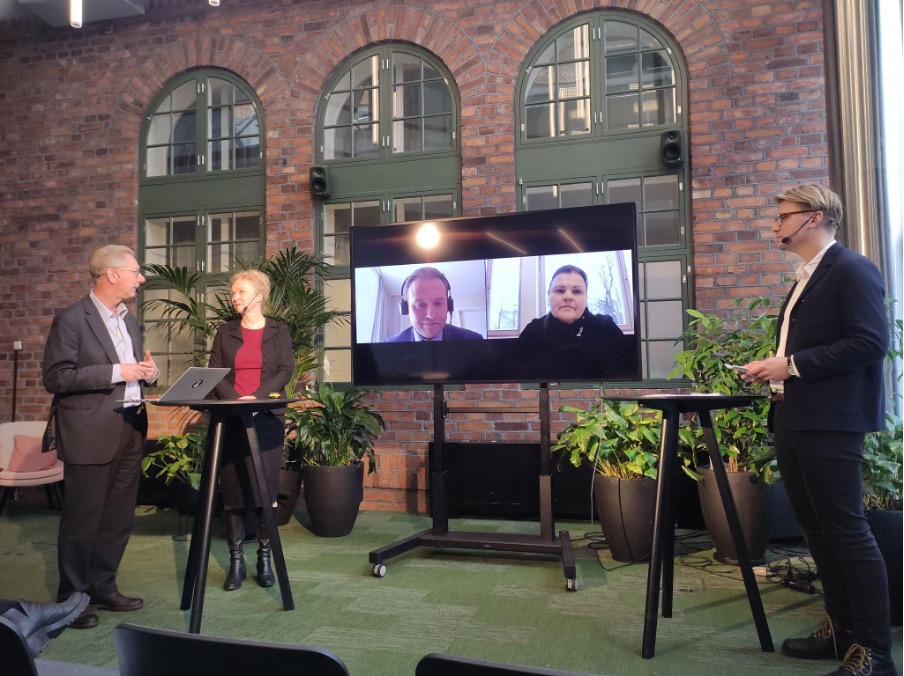The central coordinator of the Swedish Local2030 Hub, the independent think tank Global Utmaning, has for the past two years implemented a leadership programme on SDG localization in Belarus, Georgia, Ukraine, and Sweden to support cities and municipalities in their work to translate the SDGs into local actions. The Leadership Programme was built on the potential of peer-to-peer knowledge sharing and aimed to support multi-level governance and strengthen the capacities of Belarus, Georgia, and Ukraine to implement SDGs on sub-national levels.
On the 3rd of December 2021, Global Utmaning launched the outcomes report of the programme: Localizing SDGs in the Eastern Partnership Countries, during a hybrid event where local stakeholders from Belarus, Georgia, Ukraine, and Sweden, together with representatives from the Swedish Ministry of Foreign Affairs, the Swedish Institute, UN Economic and Social Commission for Europe and UN Development Programme in Belarus, Georgia, and Ukraine discussed how each level could support the process of SDG localization in the eastern partnership countries.
The seminar and the report resulted in the following recommendations to support SDG implementation in Belarus, Georgia, and Ukraine:
- Structural changes are needed in terms of introducing local SDG advisory units and/or regional coordinators for municipal and regional authorities. This allows raising expert potential and effectiveness of decision-making in a wide range of spheres: from relevant methodologies for local budget planning to awareness-raising campaigns and educational events for all. Municipal and local governmental bodies should be empowered by national authorities to act independently on SDG localization.
- For that, local SDG Action Plans should be elaborated in a participatory way, adopted by local authorities, and implemented by communities, with financial support from both international organizations, national governments, and donors. Regional Working Groups on SDGs and Sustainable Development Councils should be activated to attract key local stakeholders in the process of the 2030 Agenda implementation at the local level.
- A complex educational effort should be realized locally to raise awareness and core understanding of the SDG concept. International donors should focus on providing peer-to-peer learning opportunities and materials in native languages to sub-national stakeholders; SDG-related topics should be introduced in formal and life-learning education. To enhance the structural changes described in the above paragraph, introductory training on SDGs localization for local authorities (public servants) should also be introduced. Locally designed SDG educational programmes were highly relevant and strongly missing in all three countries.
- To empower theoretical knowledge on SDGs and transform it from an “abstract” concept to a practical call to the local action, a set of good practices and experience exchange is needed. International and local organizations with expertise in SDGs should assist the local governmental bodies in developing SDG-based integrated urban development strategies and action plans to facilitate local implementation of the SDGs. Expert panels, discussions, and networking are essential to sustain the interest in the 2030 Agenda topic on the local level, as well as study tours to municipalities owning “successful stories” of SDG localization.
All of this requires a diverse and comprehensive funding scheme: in terms of projects’ duration and scale, forms of executing organizations, funding sources, etc. Nevertheless, the financial support should be focused on those three main directions indicated above: structural changes, educational programmes, and expert peer-to-peer support.
The Swedish Institute financed the Leadership programme, and the report can be read here.


Comments